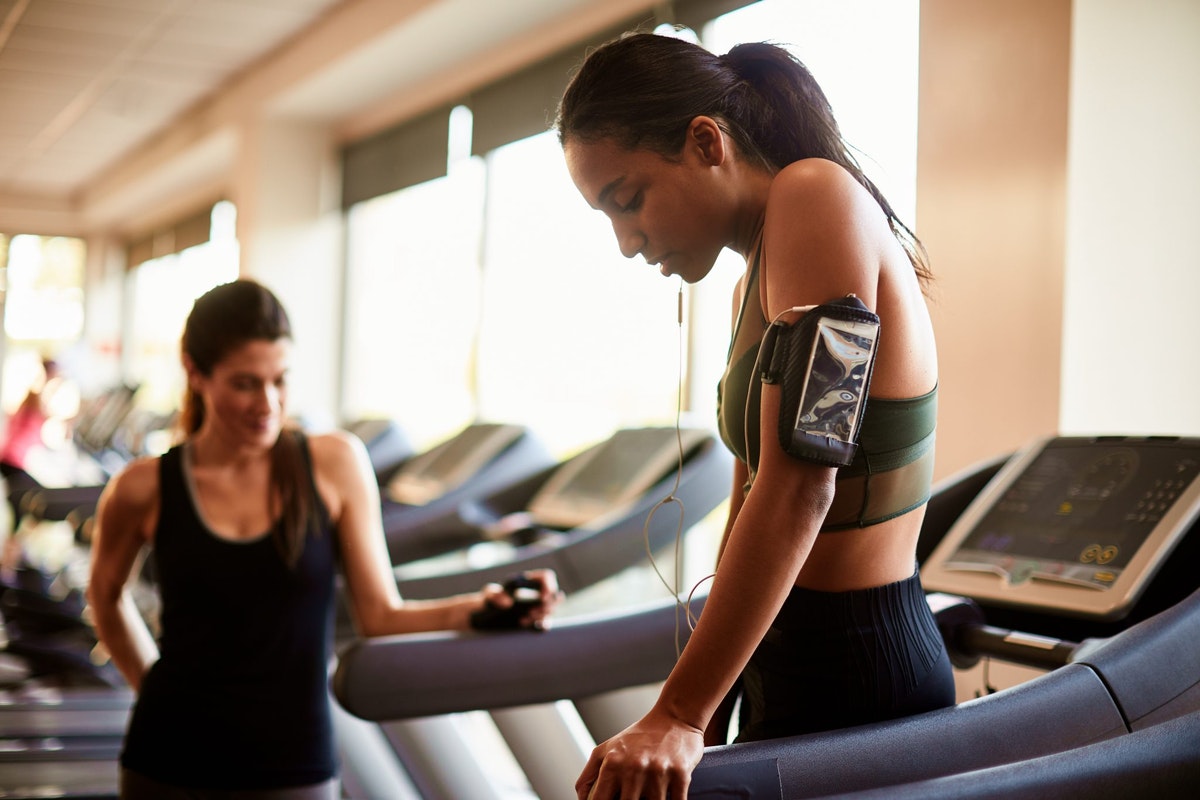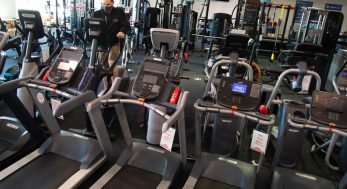My alarm used to go off at 6AM. I’d be out of the door with a coffee in hand by 6:15, I’d be in the gym by 6:30, training pretty hard. Then I’d rush around the changing rooms like Flash and be on the tube by 8:15. I’d be at my desk, with more coffee and breakfast, by 9AM.
Days were filled sporadically but busily. Evenings were spent either power walking to Soho for dinner and drinks with equally as quick-walking friends, or rushing home to crash and burn.
You may also like
Are you exercising too much during lockdown? Here’s why it’s time to turn off “beast mode”
In no way is this description of my pre-pandemic life meant to come across as A Good Thing. At the time, I saw no problem with it. But looking back, I am quite intimidated by the amount of stuff that was involved in the first three hours of my day, let alone the other 21.
My desire to keep training, coupled with all of the other demands of normal life, meant that I could have been headed for a period of burnout, explains Dr Samantha Wild, a GP for BUPA healthcare. This “occurs when you feel overwhelmed, stressed and exhausted, both emotionally and physically”. But then lockdown came, which allowed for my sleep to get longer (there was no gym or work to rush off to, after all). My workouts were less intense (I only had my kitchen to workout in, after all). There was no physical or mental stress that comes with commuting on a rush hour tube.
While I recognise that not everyone experienced lockdown as a time to reset and relax, for many it was a great escape from the go-go-go of real life. But now, we are entering a period of ‘new normal’. My alarm is back to an early start now that my gyms are open, and I’m back to lifting heavy weights. I am without a commute for the foreseeable future, but I am still working within set hours before I rush off to make a well-sanitised dinner reservation or park drink.
I can see things slipping back to what they once were: not so much a balance or a juggle of the important things in my life, but simply jumping between the deep ends of training, work and socialising. As I’m writing this, I have a little gin induced headache and a lack of sleep from enjoying my reinstated social life while still getting up for a workout this morning.
This makes me nervous, and a quick straw poll of friends suggests that most of us are a bit worried about finding a way to do everything again. That is as much true for those who have discovered HIIT or running during lockdown and don’t want to give up as soon as the offer of late nights out are put on the table as it is for those who have been training for years yet can’t remember how they once fit it all in.
You may also like
Post-lockdown anxiety: “I’m an introvert and I’m worried about my post-lockdown plans”
A good place to start, explains Dr Wild, is to take things slowly. “Find a speed that feels safe to you rather than putting pressure on yourself. Build your resilience up by setting yourself small, achievable goals.” That means understanding that you can see your friends without being out all night, you can go to the gym without hitting all of your personal bests, you can go into the office a couple of times a week rather than every day (if you’re allowed).
This sounds easy, but as someone who was recently referred to as “the person who could never half arse things”, I struggled with the idea of not always doing my best. And yet, knowing that you can do everything, but not everything at 100% is the answer here. We can do a less intense, 30-minute workout. We can eat the pizza and be home by 9PM. We can try to detach ourselves from our jobs.
This is where a schedule is going to come in handy. When we think ahead, we’re more likely to make decisions that will benefit our physical and mental health, says Dr Wild. “For example, if you’re back in the office for example, plan for a stress-free commute. Walk where you can – you’ll find it’s a lot more relaxing than a hot bus or train ride. And start work at work; reclaim your commute by avoiding looking over your emails and taking the time to relax,” she says.
“Lockdown has allowed us all time to reflect and review our behaviours. So if there’s something you’ve not enjoyed doing before lockdown, now’s the time to ditch it,” Dr Wild adds. Which means learning to make decisions for ourselves, rather than those around us. Ditching the peer pressure is key for me. I like having at least two weeknights a week with no plans. Why am I ashamed of that? And it’s not just about dinner and drinks either. Having made a whole heap of friends at the gym, I feel guilty when I don’t turn up for morning training. But if I know that my body needs rest, why attempt going?
I always think about the advice that expert after expert has given me, and that is that your body repairs in sleep. If you are training every day, all you’re doing is tearing muscles and not actually letting them grow back bigger and stronger. When they put it like that, it feels like a bit of a waste of time. Three good sessions a week are better than five sessions that you can’t recover from.
Switching off is also key. Lockdown has taught me that it’s OK to do nothing except sit in front of the TV all evening if that’s what I want to do. It is remembering these lessons that is key: set a reminder on your phone to log off in the evening, block out pages in your diary for reading, whatever it takes to know that relaxing is not optional.
Finally, we need to be able to spot the signs of burnout. “If you’re taking on too much, chances are you’ll start to feel exhausted, stressed and overwhelmed. Watch out for these signs that you’re taking on too much, so you can re-prioritise your health and wellbeing,” says Dr Wild.
Honestly, for most of us, it will probably be about making conscious choices multiple times a day. To say no, to go home, to shut the laptop, to not get lost in the speed of modern life. But, it will probably be worth it.
Follow @StrongWomenUK on Instagram for the latest workouts, delicious recipes and motivation from your favourite fitness experts.


